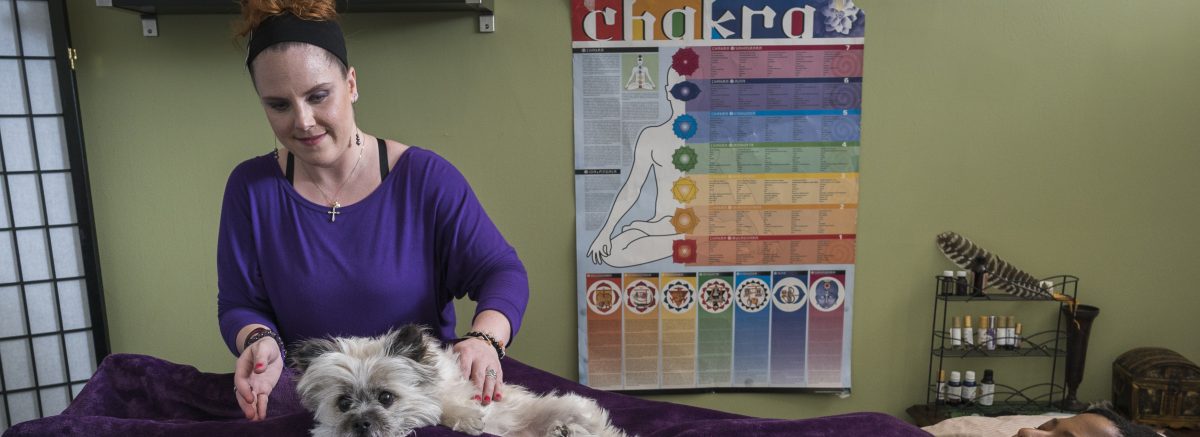
When you hear the word hypnosis, you may picture the mysterious hypnotist figure popularized in movies, comic books and television. This ominous, goateed man waves a pocket watch back and forth, guiding his subject into a semi-sleep,zombie-like state. Once hypnotized, the subject is compelled to obey, no matter how strange or immoral the request. Muttering “Yes, master,” the subject does the hypnotist’s evil bidding.
This popular representation bears little resemblance to actual hypnotism, of course. In fact, modern understanding of hypnosis contradicts this conception on several key points. Subjects in a hypnotic trance are not slaves to their “masters”– they have absolute FREE WILL. And you are not really in a semi-sleep state –you’re actually hyper-attentive.
What is hypnosis?
Being hypnotized means to simply be in a trance-like, very relaxed state.All hypnosis is self-hypnosis and you don’t even need a hypnotherapist to become hypnotized. Have you ever lost yourself in a really good book or movie? Ever daydream? If so, you have already experienced the state of hypnosis. But a hypnotherapist, however, can effectively help you take on physical and mental health challenges in a more directed way.
Hypnosis: Alternative medicine
While hypnosis has been around forever, it has recently become more and more mainstream as people have been reaching for alternative ways to rid themselves of pain, addictions and stress. According to the Mayo Clinic, hypnotherapy may be used to change negative behaviors, such as smoking, bed-wetting and overeating. It can also be used to reduce or eliminate fears, stress and anxiety.
Hypnosis creates a new inner belief
The theory behind hypnosis, is that hypnosis can gently release blocks and fears from the subconscious levels of our mind, and create a new inner belief that will set the wheels in motion to make changes in the way you think, feel and behave.
What happens during hypnosis?
During an initial consultation, the hynotherapist will ask you questions about the issue you are seeking to resolve. You set the goals your want to achieve i.e. stop smoking, manage your weight, eat healthy, forgive someone, perform better in job, become less angry or more romantic.
Typically, you will be asked to either lay down or sit down in a comfortable chair.The therapist will gently guide you to a state of relaxation. Some people will feel very at peace, others may feel light while others may say they don’t feel anything at all. Regardless, the goal is to get as relaxed and calm as possible.
 The therapist will then begin to make new suggestions to you while you are in this state. For example, if you are seeking to kick the nicotine habit, the therapist may say “If you are asked to a cigarette, you will say “I’m a non-smoker” or ” You are going for a walk when you feel the need to smoke. You are no longer craving nicotine.”
The therapist will then begin to make new suggestions to you while you are in this state. For example, if you are seeking to kick the nicotine habit, the therapist may say “If you are asked to a cigarette, you will say “I’m a non-smoker” or ” You are going for a walk when you feel the need to smoke. You are no longer craving nicotine.”
The basic premise is to place these new, powerful thoughts in your subconscious mind so you will be able to believe them and change your reality. After the session is completed, the therapist will “wake” you up and you should feel alert and refreshed.
Every one can benefit from hypnosis
Some people believe they cannot be hypnotized. Anyone can be hypnotized, if they want to. Every human experience self-hypnotized on a daily basis at some level. If you have ever daydreamt, then you have hypnotized yourself.Though you may not seek the guidance of a hypnotist, you do have the ability to bring yourself into a trance-like relaxed state, which can help you relieve the grind of daily stress.
If you have particularly pressing health issues, talk to a naturopath or another alternative medicine professional to see if hypnosis is right for your situation; they can direct you to a qualified hypnotherapist. Hypnosis, whether it be self-induced or professionally guided, can be a beneficial addition to your overall healthcare.
Pros of Hypnosis
Hypnosis offers the potential to help treat your medical conditions without the need for invasive therapies or additional medications. Hypnosis a safe treatment option, with minimal side effects.
While it may not work for everyone, hypnosis is what’s known as a complementary therapy. A person can use hypnosis in addition to other treatments for depression to enhance an overall sense of well-being, lift mood,and boost feelings of hopefulness. Hypnotherapists use it to treat a number of conditions, below list just a few and not limited to:
- addictions to anything i.e. drug, alcohol, gambling, sex, TV, electronics
- anger management
- anxiety, depression and anxiety, reduce panic attacks
- athletic performance and sports improvements
- childbirth assistance
- children issues
- confidence, self esteem, personal development
- chronic pain
- concentration problems
- compulsive eating
- diet, weight loss, stop junk food and sugar addiction
- Executive skills, work performance, time management, etc
- fear of love, meeting people, social settings, relationships
- fear of public speaking
- fear and phobias
- grief, survivor guilt, loss of child, loneliness, coping with loss
- habits & disorders
- high blood pressure/reducing stress
- irritable bowel syndrome
- pain relaxation and control
- psychic & paranormal
- regression & progression
- to self hypnosis
- sex issues
- shyness
- smoking control, STOP smoking
- Studies, memory retention, performance, testing anxiety for exams
- teeth grinding
For example, a person with depression experiences a wide variety of emotions. Hypnosis can help a person learn to reduce and/or better control feelings of anxiety, stress, and sadness. Hypnosis can also be used to treat negative behaviors that could be worsening a person’s depression. These behaviors may include smoking and poor eating and sleeping habits. Your first consult will address your overall challenges and set goals you want to accomplish.
Cons of Hypnosis – What the experts say
Hypnosis is relatively safe. Some other potential side effects are headache or feeling light headed. However, these usually fade shortly after the hypnosis session.
People considering hypnotherapy should first consult their doctor or psychiatrist.People suffering from delusions, hallucinations, or other psychotic symptoms might not be the best candidates for hypnotherapy.Before you attempt hypnosis, you will talk to the therapist first. Be open and honest with them. It may be possible that hypnosis is not an effective treatment method. The therapy requires a person to relax, focus and enter a trance state of hypnosis. For some people, this is very difficult.
Hypnosis appears to work best when used with other forms of treatment. It may help reduce a patient’s resistance to other more traditional treatments. It’s important to remember that depression, along with severe and chronic mental illnesses such as bipolar disorder and schizophrenia, also affect a person’s physical health. Depression is more than just feeling sad or having negative thoughts. It’s a condition where the chemicals in your brain are imbalanced.
Hypnosis is a complementary therapy, and it shouldn’t be the only therapy a person uses to enhance their mental health. Anyone considering hypnosis should first consult with their trained mental health professional, discuss it first and see if this should be the direction your take.

